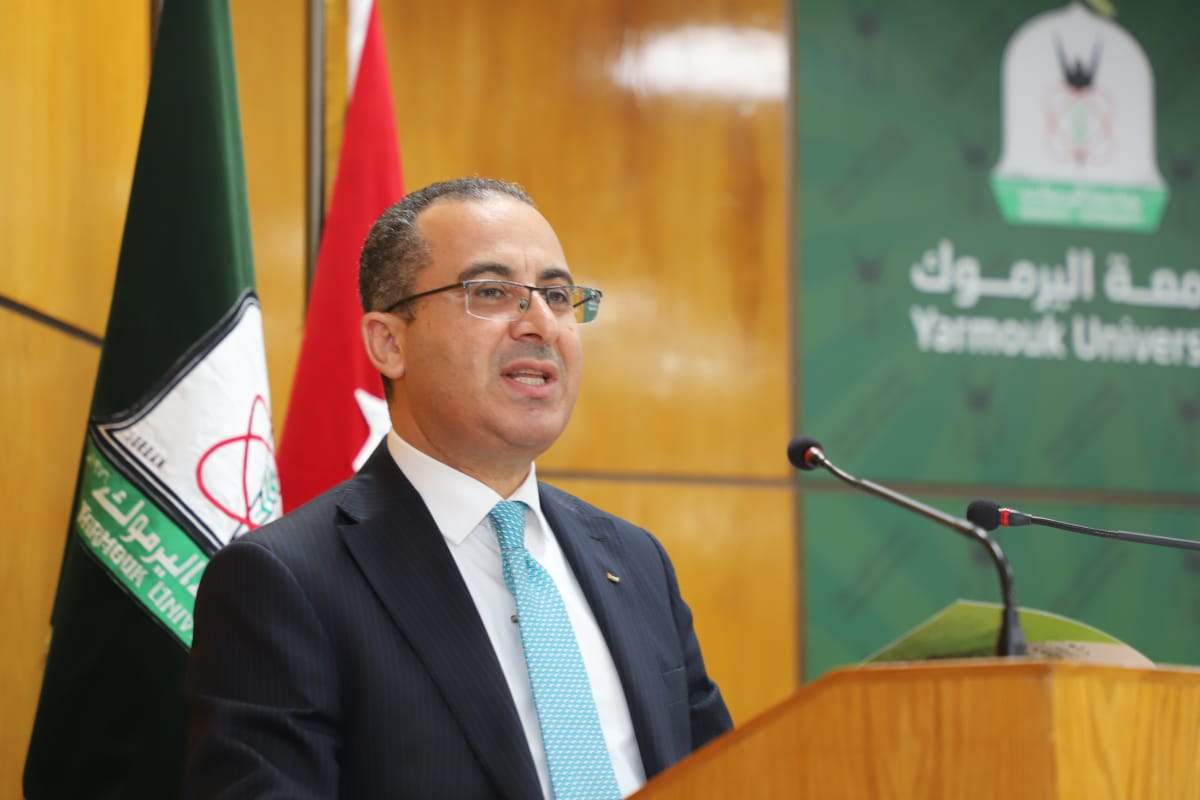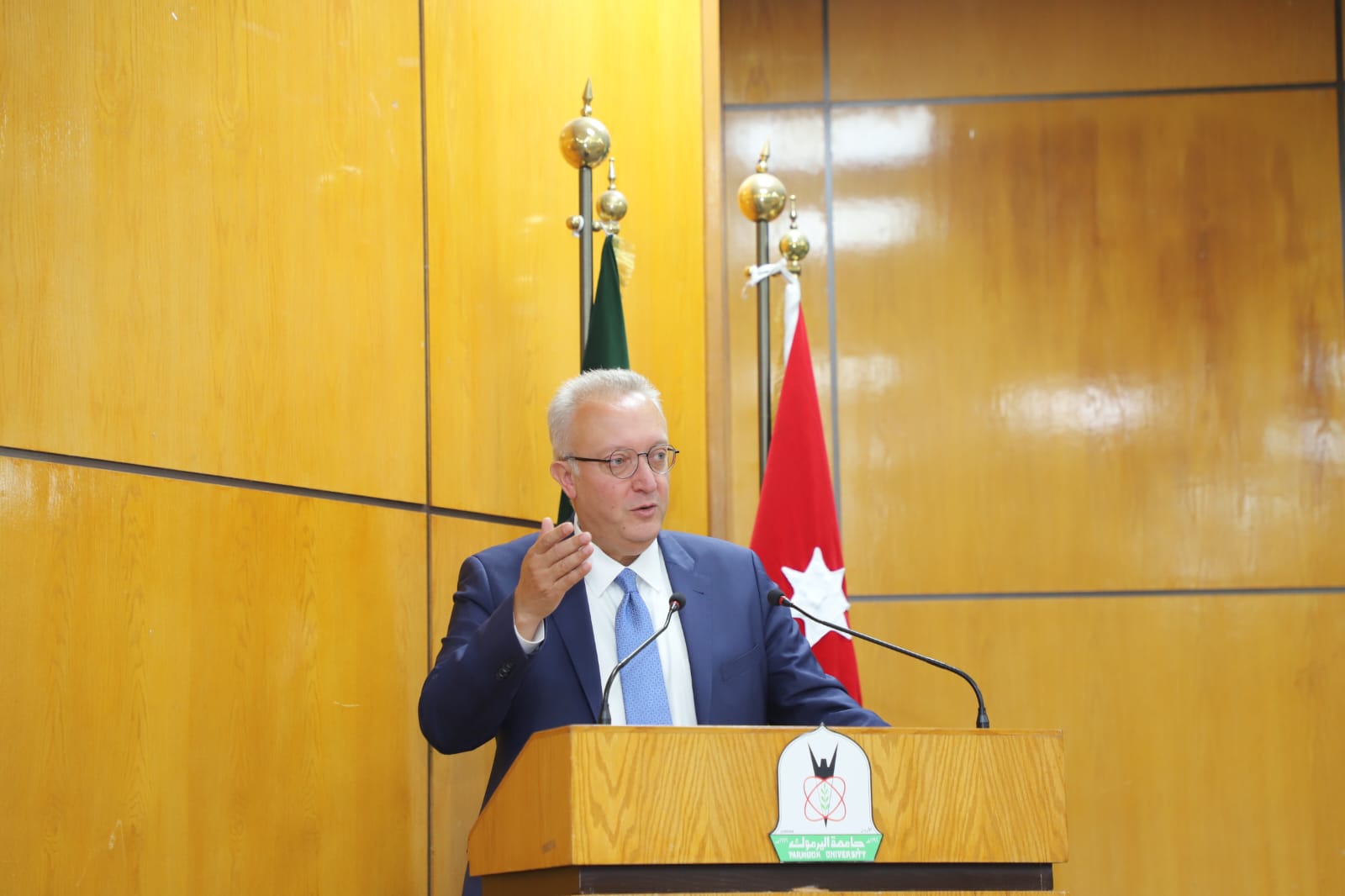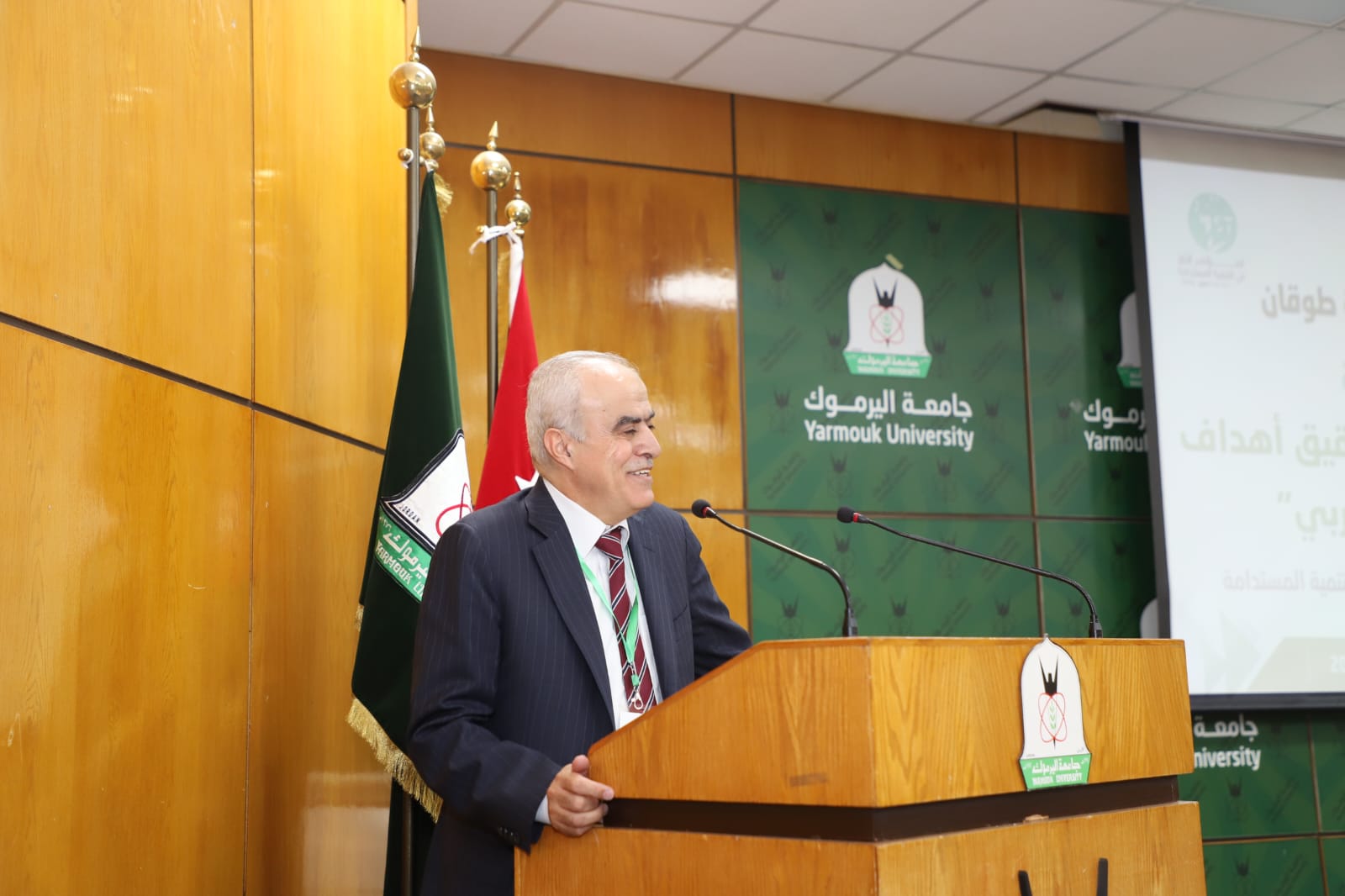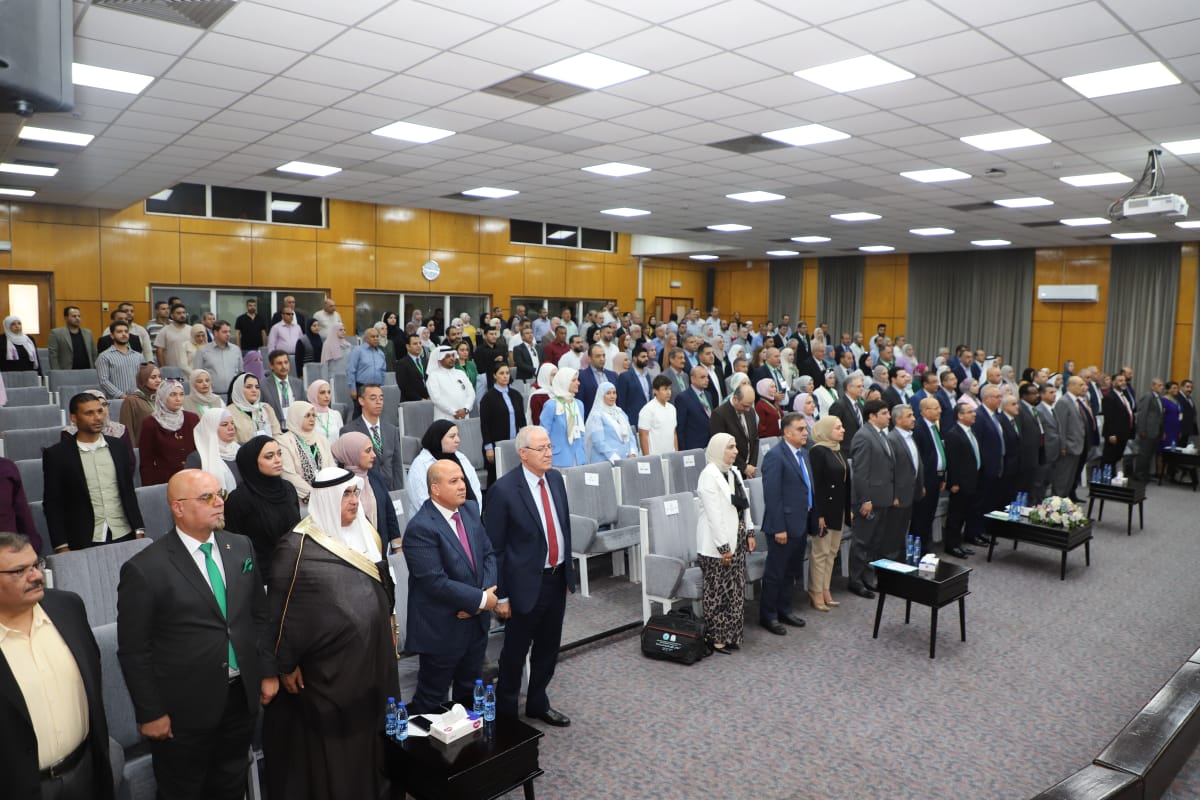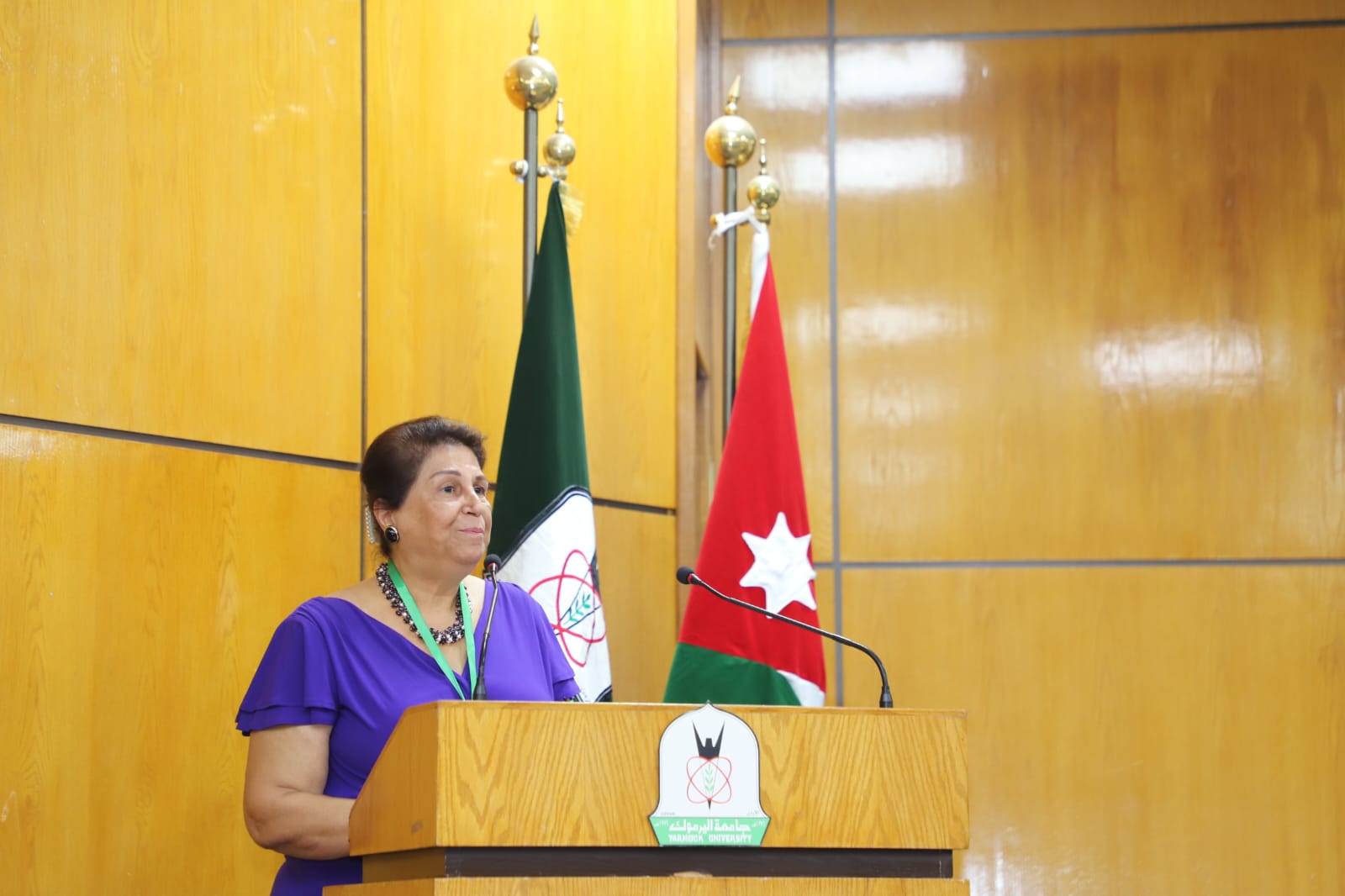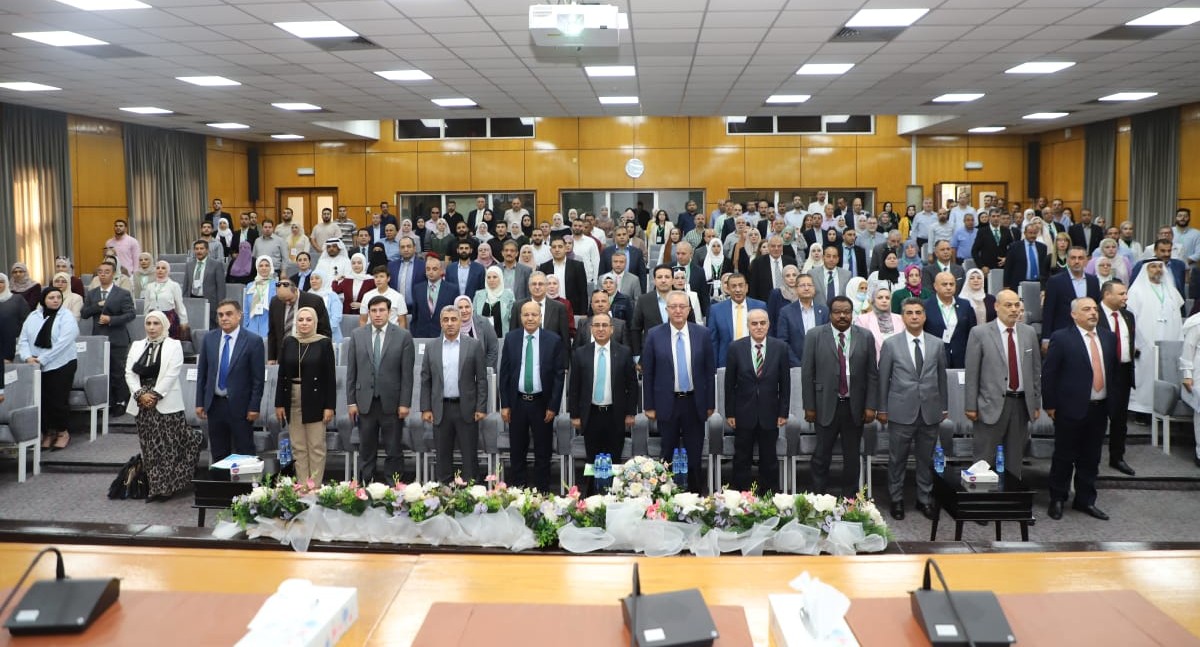
Al-Rifai: The conference reflects Jordan's commitment to achieving sustainable development
locally, regionally, and internationally.
- Masad: The conference's theme lies at the heart of Yarmouk University's national and Arab
Mission.
- Athamneh: The conference is an objective response to the necessities imposed by the current
Arab reality.
- Al-Ghusaini commends Yarmouk University's initiative to bring together Arab researchers to
discuss a common Arab concern.
On behalf of the Minister of Planning and International Cooperation, the Ministry's Secretary-General, Marwan Al-Rifai, sponsored the opening of the first Sustainable Development Conference at Yarmouk University, in the presence of the university's president, Dr. Islam Massad. The conference, titled "From Vision to Reality: Assessing the Progress of Achieving the Sustainable Development Goals in the Arab World," was organized by the Queen Rania Center for Jordanian Studies and Community Service and the Center for Sustainable Development Studies. In his opening remarks, Al-Rifai commended Yarmouk University's efforts in organizing this important, qualitative conference as we approach the halfway point toward 2030, the target date for achieving the 17 UN goals. He emphasized that this conference reflects Jordan's ongoing commitment, under the guidance of its wise leadership, to achieving comprehensive and sustainable development at the local, regional, and international levels.
He emphasized that achieving the Sustainable Development Goals is not without challenges that directly impact countries' ability to finance development, provide basic services, and invest in the future. As a result, the government revised its national blueprint for sustainable development, emphasizing funding sources, increasing public spending efficiency, and fortifying private sector collaborations. Additionally, the government declared five major pledges:
Development of data systems, decent work, education, climate action, and food security.
Al-Rifai emphasized the importance of continuing, embracing experiences, enhancing coordination for Arab and international action, improving the sharing of knowledge, fostering group thinking, and exploring creative solutions.
Massad, for his part, underlined that the conference's theme is central to Yarmouk.
The university's national and Arab mission statement explains how, since its inception, it has contributed significantly to development challenges through community service, high-quality instruction, and reliable scientific research. He emphasized that one of the key tenets of social advancement is the university's ideology, which is founded on incorporating sustainable development concepts into its programs, initiatives, and strategic objectives. In order to achieve societal progress, he also underlined how it fosters an innovative culture, advances applied research, and opens up fresh opportunities for international collaboration. Massad continued: "The Arab region has witnessed positive steps towards sustainable development over the past decade, but many of these challenges still exist." He emphasized that Yarmouk University, through this conference, seeks to achieve several fundamental objectives, including conducting an in-depth analysis of the achievement of the Sustainable Development Goals, identifying existing gaps and challenges, establishing effective partnerships between governments, the private sector, and civil society, exchanging knowledge and successful experiences, and developing practical, applicable recommendations that contribute to supporting national and regional policies in the field of sustainable development.
Dr. Abdul Basit Athamneh, Director of the Queen Rania Center for Jordanian Studies and Community Service and the Center for Sustainable Development, emphasized that organizing the conference comes as an objective response to the necessities imposed by the current Arab status quo, in light of the accumulated challenges we are witnessing, all of which intersect at a fundamental crossroads entitled: the future of sustainable development in our Arab region. He noted that despite the differences in political and economic situations among Arab countries, there are undeniable commonalities and similar development aspirations. He noted that in a world moving toward regional blocs and cross-border cooperation, Arab partnerships in the field of sustainable development have become a necessity, not a theoretical luxury. Athamneh called on conference participants to present actionable recommendations based on successful Arab case studies and authentic development experiences, enabling decision-makers to confidently move toward a sustainable future. Dr. Nuha Al-Ghusaini from Lebanon delivered the conference participants' speech, praising the efforts of Yarmouk University, which has always been an effective and open platform for addressing people's issues and the aspirations of Arab societies for justice, dignity, and sustainability. She noted that this scientific conference constitutes an advanced platform for knowledge dialogue and research networking, bringing together researchers and experts from diverse countries and academic backgrounds around a shared Arab concern and questions, such as: Where do we stand about the Sustainable Development Goals? What has been achieved? What has faltered? How can we redraw the path with more innovative and effective tools and partnerships? She called for reviewing priorities and policies, and investing in this type of conference as a platform for developing realistic solutions based on our Arab reality and responding to its challenges by harnessing the energies of youth, supporting innovation, promoting a culture of active citizenship, and adopting artificial intelligence and digital transformation responsibly and fairly, which has become a strategic necessity to improve services, enhance transparency, and raise the efficiency of government performance, especially in light of declining resources and increasing crises.
The first day of the conference included a dialogue session titled "Sustainable Development Goals in the Region: Achievements and Challenges After a Decade." The participants included the Secretary-General of the Arab Thought Forum, Dr. Sadiq Al-Faqih; the Director-General of the Department of Statistics, Dr. Haidar Freihat; the Deputy Resident Representative of the United Nations Development Program in Jordan, Majida Al-Assaf; and the Ministry of Water and Irrigation, Engineer Bashar Batayneh.
The first day's activities included three scientific sessions. The first was titled "Progress in Achieving the Sustainable Development Goals in the Arab Region: Achievements and Gaps," the second was titled "Legal and Institutional Dimensions of Achieving the Sustainable Development Goals in Arab Countries," and the third was titled "Health and Sustainable Development: Opportunities and Challenges." The conference's activities and sessions will be held over three days, with the participation of researchers and experts from 17 Arab countries. They will discuss 80 research papers addressing several conference themes, including progress in achieving the Sustainable Development Goals in the Arab region, good governance and institutional mechanisms for implementing the Sustainable Development Goals, addressing climate change and promoting green growth, and the role of technology and innovation in achieving the Sustainable Development Goals.
